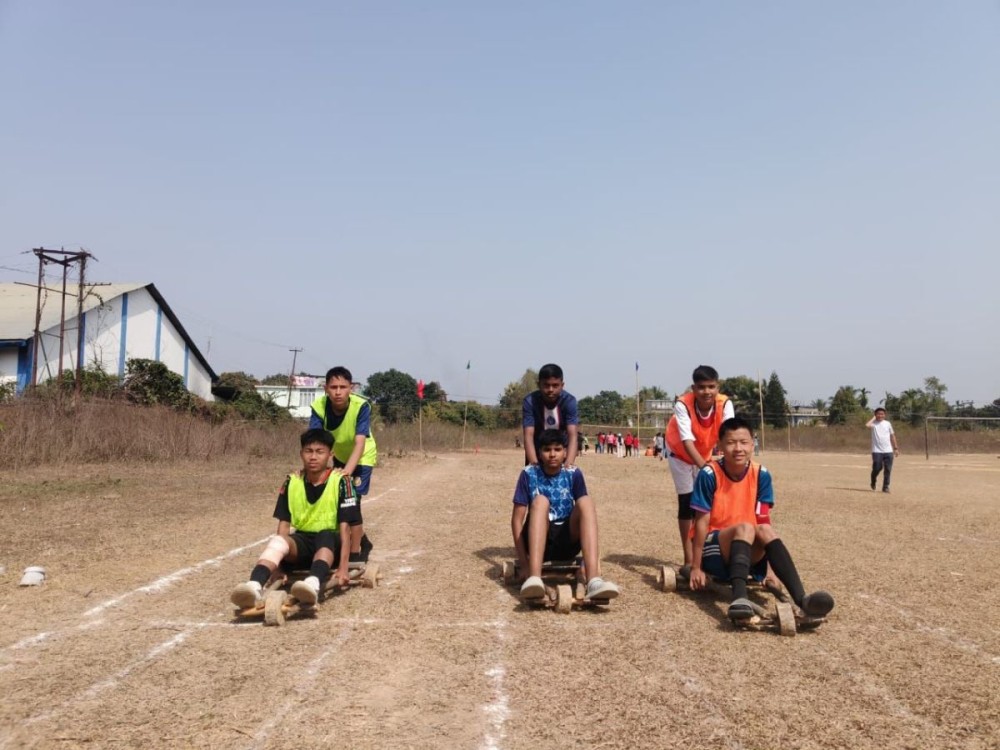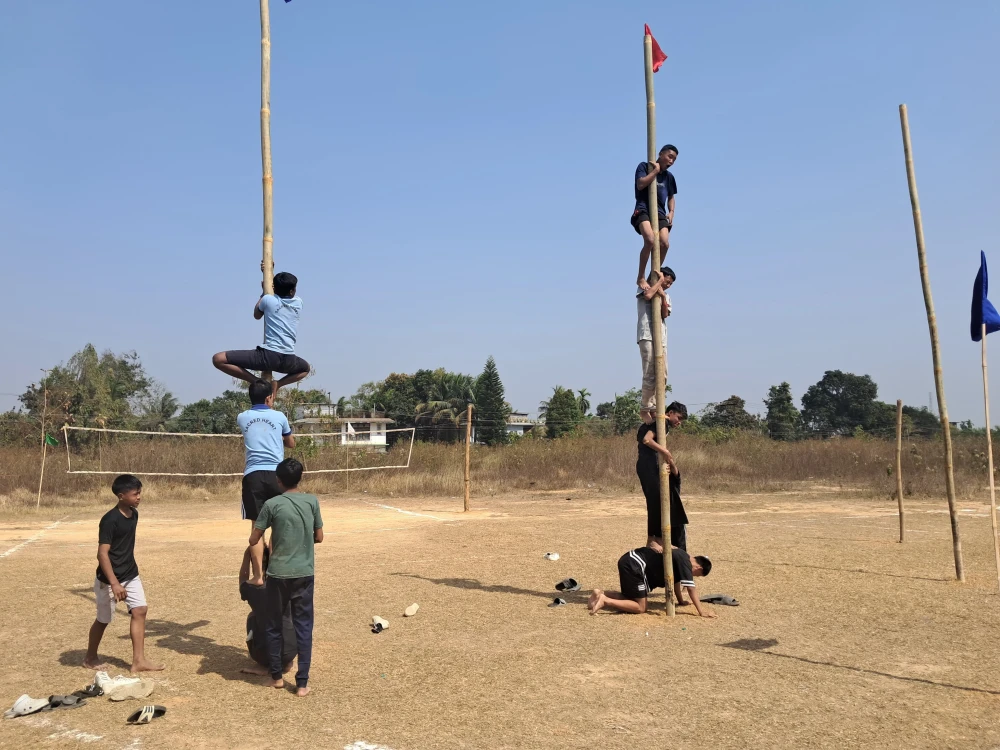Students of Sacred Heart School, 5th Mile, Chümoukedima taking part in the bamboo pole climbing and cart racing. The indigenous games were introduced in the school’s annual sports week, being held from March 5 to 7. (Morung Photo)

Rebecca Kits Jakhalu
Kohima | March 6
On March 5, students of Sacred Heart School, 5th Mile, Chümoukedima were in for a treat as the school introduced indigenous games in its annual sports week for the first time, alongside other sports events.
The inclusion of these games during the sports weekis aimed at reviving the traditions of indigenous Naga games and promoting cultural awareness among the younger generation. It aims to revive traditional practices that are increasingly being overlooked in today’s modern world.
According to the school's Proprietor, Vil Tsükru, this is a deliberate attempt to help students reconnect with their cultural roots.
“The sole purpose of introducing indigenous games was to help students reconnect with our traditions and culture,” Tsükru informed The Morung Express. The idea is to inspire the students and to evoke their curiosity and interest in our traditions and culture. In a rapidly changing world, it becomes even more essential to keep such practices alive, especially for younger generations who might not have the opportunity to experience them in everyday life, he added.

We believe that education does not only take place within the four walls of the classroom. Every aspect is important and necessary for the holistic development of a child, cultural traditions being one such essential aspect. This is just one part of the many things that we are doing with the vision that our good traditions will be preserved and continue amongst the younger generations, Tsükru added.
“We cannot forget the significance of our culture and traditions. These are the pillars that shape the identity of our community and our future. But sadly, we are slowly forgetting the practices and traditions followed by our forefathers,” Tsükru noted.
To make the experience even more authentic, the Proprietor had wooden carts specially-made from his native village in Khuzama. The carts are being used in the cart racing event, one of the indigenous games featured in the sports week.
This initiative is part of a larger effort by the school to promote cultural awareness and preserve traditional practices. In 2024, the school also included traditional events like winnowing of rice, traditional fire making, and war cry competition, along with folk dance and a special documentary on the rich heritage display of a Naga kitchen, as part of its cultural day celebration.
“By introducing students to such activities, we hope to inspire a sense of pride and ownership among them, and to help them develop a deeper appreciation for the rich cultural heritage of the Naga people,” Tsükru shared.
As teams of students enthusiastically took part in the bamboo pole climbing and raced down the school grounds with wooden carts, they evoked memories of a simpler, yet vibrant past.
The school's initiative does not stop here. In the coming years, they plan to include indigenous games of other Naga tribes in the annual sports week programmes to promote cross-cultural understanding and appreciation among students.
The school also has plans to invite elders in the community to share stories and history with the students, providing them with a unique opportunity to learn about their roots.
The new initiative has been well received by both students and teachers, Tsükru shared. There were some students who witnessed and learned about these indigenous games for the first time. “Their excitement and interest in the activities is very motivating. We will continue to incorporate more traditional activities into our curriculum, and explore how cultural preservation can be integrated into modern education in meaningful and engaging ways,” Tsükru concluded.






